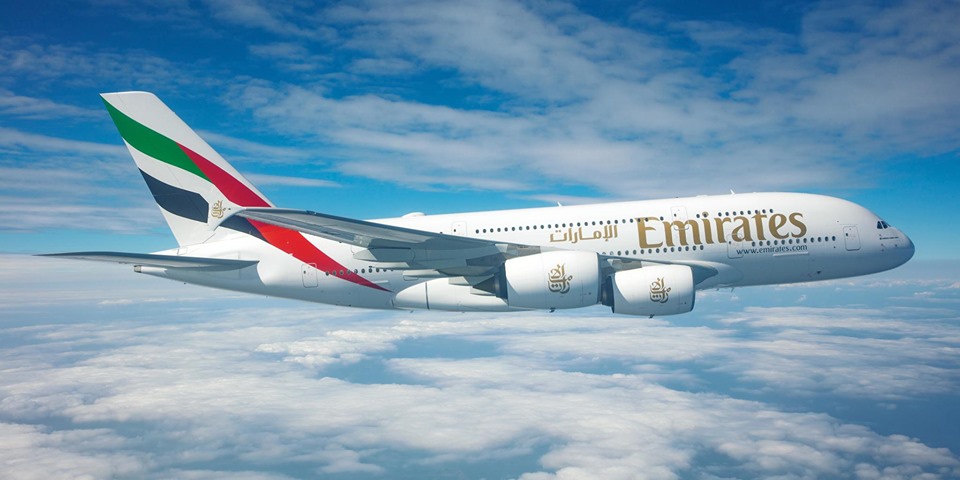
DUBAI, United Arab Emirates — Commercial airliners flying over the Persian Gulf risk being targeted by “miscalculation or misidentification” from the Iranian military amid heightened tensions between the Islamic Republic and the U.S., American diplomats warned Saturday, even as both Washington and Tehran say they don’t seek war.
The warning relayed by U.S. diplomatic posts from the Federal Aviation Administration, though dismissed by Iran, underscored the risks the current tensions pose to a region critical to both global air travel and trade. Oil tankers allegedly have faced sabotage and Yemen rebel drones attacked a crucial Saudi oil pipeline over the last week.
Meanwhile on Saturday, Iraqi officials said ExxonMobil Corp. began evacuating staff from Basra, and the island nation of Bahrain ordered its citizens out of Iraq and Iran over “the recent escalations and threats.”
However, U.S. officials have yet to publicly explain the threats they perceive coming from Iran, some two weeks after the White House ordered an aircraft carrier and B-52s bombers into the region. The U.S. also has ordered nonessential staff out of its diplomatic posts in Iraq.
President Donald Trump since has sought to soften his tone on Iran. Iranian Foreign Minister Mohammad Javad Zarif also stressed Saturday that Iran is “not seeking war,” comments seemingly contradicted by the head of the Revolutionary Guard, who declared an ongoing “intelligence war” between the nations.
This all takes root in Trump’s decision last year to withdraw the U.S. from the 2015 nuclear accord between Iran and world powers and impose wide-reaching sanctions. Iran just announced it would begin backing away from terms of the deal, setting a 60-day deadline for Europe to come up with new terms or it would begin enriching uranium closer to weapons-grade levels. Tehran long has insisted it does not seek nuclear weapons, though the West fears its program could allow it to build atomic bombs.
The order relayed Saturday by U.S. diplomats in Kuwait and the UAE came from an FAA Notice to Airmen published late Thursday in the U.S. It said that all commercial aircraft flying over the waters of the Persian Gulf and the Gulf of Oman needed to be aware of Iran’s fighter jets and weaponry.
“Although Iran likely has no intention to target civil aircraft, the presence of multiple long-range, advanced anti-aircraft-capable weapons in a tense environment poses a possible risk of miscalculation or misidentification, especially during periods of heightened political tension and rhetoric,” the warning said.
It also said aircraft could experience interference with its navigation instruments and communications jamming “with little to no warning.”
The warning comes 30 years after the USS Vincennes mistook an Iran Air commercial jetliner for an Iranian F-14, shooting it down and killing all 290 people onboard. That was not lost on Iran’s mission to the United Nations, which dismissed the warning as America’s “psychological war against Iran.”
“There has never been a threat or risk to civilian air traffic in the Persian Gulf from Iran,” mission spokesman Alireza Miryousefi told The Associated Press. “One cannot forget the fact that it was indeed a U.S. warship that wantonly targeted an Iranian civilian passenger aircraft. … The U.S. has yet to apologize for that act of terrorism against Iranian civilians.”
The Persian Gulf has since become a major gateway for East-West travel in the aviation industry. Dubai International Airport in the United Arab Emirates, home to Emirates, is the world’s busiest for international travel, while long-haul carriers Etihad and Qatar Airways also operate in the region.
Emirates, Etihad and Qatar Airways all said they were aware of the notice and their operations were unaffected. Oman Air did not respond to a request for comment.
Speaking in China, where he finished a tour of Asian nations who rely on Mideast oil, Zarif told the state-run IRNA news agency that war is not what Iran wants.
“No war will occur as neither are we seeking a war nor anyone else has the illusion of being able to fight with Iran in the region,” Zarif said.
Meanwhile, the head of Iran’s paramilitary Revolutionary Guard reportedly said the U.S. and Iran already were in a “full-fledged intelligence war.” The semi-official Fars news agency also quoted Gen. Hossein Salami using 9-11 as a metaphor for America’s political system, describing it Saturday “like the World Trade Building that collapses with a sudden hit.”
It isn’t just air traffic affected. Lloyd’s Market Association Joint War Committee added the Persian Gulf, the Gulf of Oman and the United Arab Emirates on Friday to its list of areas posing higher risk to insurers. It also expanded its list to include the Saudi coast as a risk area.
In Iraq, ExxonMobil began evacuating staff from Basra amid the tensions with Iran, two Iraqi officials told The Associated Press. ExxonMobil works in Basra at its West Qurna I oil field, which had been shut off for years from Western oil firms over sanctions levied on Iraq during dictator Saddam Hussein’s time in power.
The U.S. Consulate in Basra has been closed since September after American officials blamed Iran-aligned Shiite militias for a rocket attack on the post, which is inside Basra’s airport compound. Basra as a whole has been shaken by violent protests in recent months over entrenched corruption and poor public services, which earlier saw Iran’s Consulate there overrun and set ablaze.
ExxonMobil, based in Irving, Texas, said it declined to discuss “operational staffing.”
Iraq is OPEC’s second-largest Arab producer, pumping some 4.5 million barrels of crude oil a day.
Separately, the State Department acknowledged an unidentified drone flew over the U.S. Embassy in Baghdad on Thursday and the facility briefly went on alert, though it said the aircraft posed no threat.
———
Associated Press writers Qassem Abdul-Zahra and Bassem Mroue in Baghdad, Nasser Karimi in Tehran, Iran, and Matthew Lee in Washington contributed to this report.